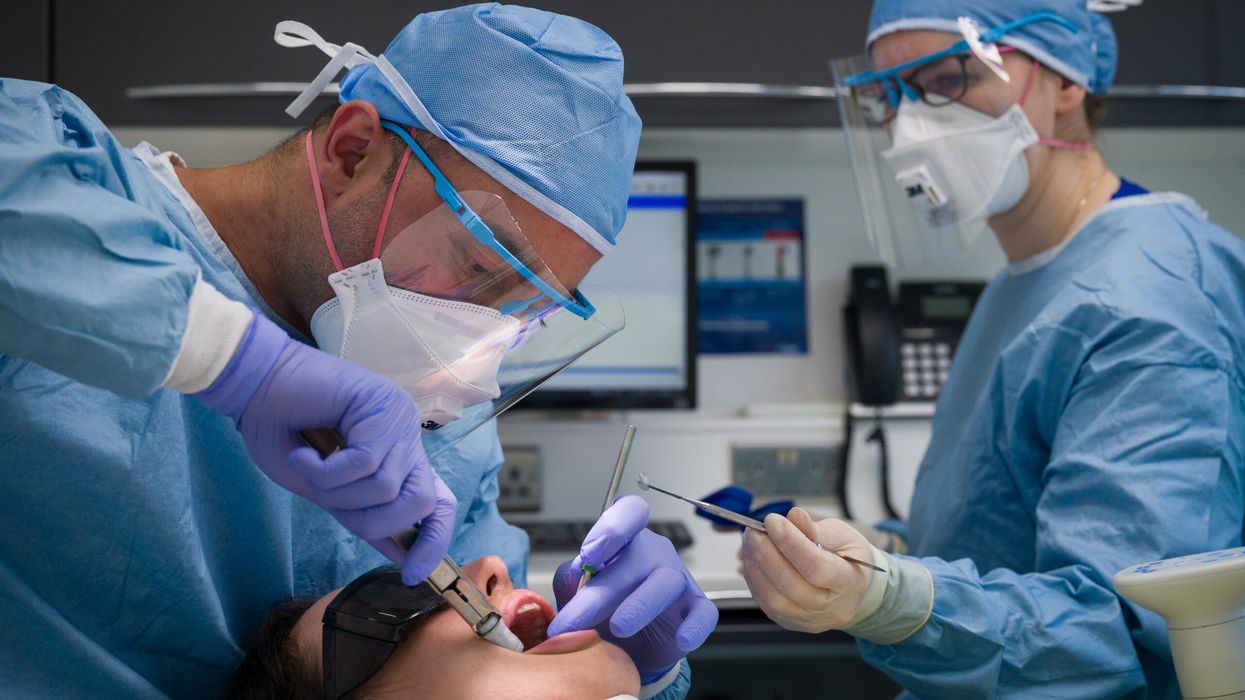FINDING an NHS dentist is becoming increasingly difficult in the UK, forcing those who can pay to the private sector and those who cannot to avoid treatment altogether – or take matters into their own hands.
Increasing numbers of dentists are turning their backs on the NHS in favour of more lucrative private practice.
The British Dental Association (BDA) said the number of active NHS dentists in England is at its lowest level in a decade.
“It’s easier to get your hands on Taylor Swift tickets in 2024 than it is to get an NHS dental appointment,” said Labour MP Ashley Dalton last month.
One in five Britons was unable to register with an NHS or private dentist, according to a YouGov poll in March last year.
Danny White, for instance, has been struggling to find a dentist for himself, his wife, who suffers from recurring abscesses, and his two daughters.
One of his daughters has a tooth growing behind her baby teeth and needs an appointment, while the other requires braces.
But all three dental practices where they live in Bury St Edmunds are no longer accepting NHS patients and only offer private care.
“It’s an absolute nightmare,” he said. “We’ve been trying so hard to get her appointment. They took everyone off their NHS list.”
White estimated it would cost £400 for the family just to have an initial consultation – an unaffordable sum when they are already struggling to pay off a car loan.
The situation has seen tales of people travelling hundreds of miles to find a dentist, getting into debt to pay for treatment, or even travelling overseas just to have a tooth out.
In Bridlington, in northern England, locals were told it would take around eight to nine years to get an appointment at the seaside town’s only dentist.
Some have turned to self-dentistry kits and superglue bought off Amazon, while another told the Daily Mail he pulled out six teeth with pliers.
Others flew to Turkey for treatment, paying a fraction of what they would have paid privately in the UK.
“People have been admitted to hospital having overdosed on painkillers,” said Mark Jones, founder of the “Toothless in England” campaign group.
“People have died from sepsis through abscesses in the mouth or from oral cancer because it has not been picked up by regular checkups. [It is so bad that] people are pulling out their own teeth.”
According to OECD data, the UK has 49 dentists per 100,000 inhabitants – the lowest rate among G7 countries.
“There’s not a shortage of dentists,” said Jones. “What there is a shortage of is dentists choosing to work in the NHS.”
In a mid-December report on the issue, The Nuffield Trust health thinktank warned that NHS dental services were “nearly at a terminal stage”.
A two-tier system is gradually taking its place: one for those who can afford to seek treatment and pay, and another for those who cannot and, as a result, see their oral health deteriorate.
The Oral Health Foundation charity said that has already had tragic consequences: in 2021, more than 3,000 people in England died from mouth cancer – up 46 per cent in a decade.
BDA president Eddie Crouch called the situation “quite shocking in a civilised country” and blamed it on under-investment for at least the last decade that was forcing patients to pay more for NHS treatments.
Cancelled treatment during the coronavirus pandemic has also created a backlog, he said.
He also pinpointed a 2006 reform which changed remuneration for dental procedures, making them less attractive for dentists.
Currently, just more than 70 per cent of dentists offer NHS treatments – and even then the service is limited – a recent parliamentary report noted.
The government has promised to put in place a plan for publicly funded dental treatment. (AFP)




